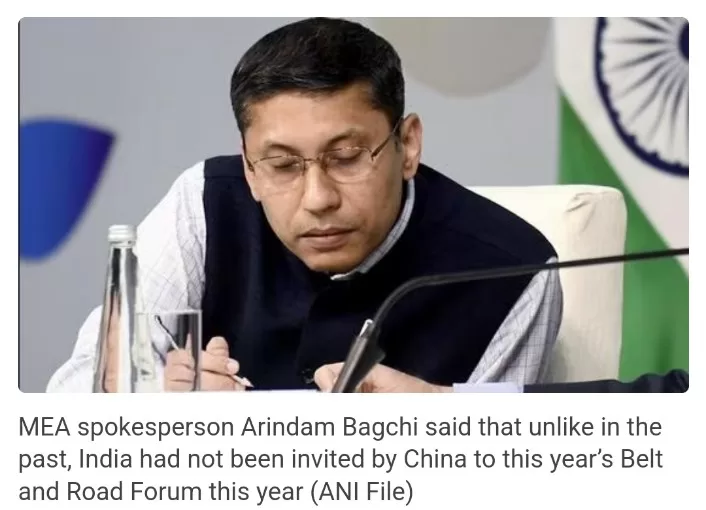In a diplomatic move that underscores India’s unwavering stance, the nation reiterated its resolute opposition to China’s ambitious Belt and Road Initiative (BRI). This reaffirmation comes as the president-elect of the Maldives, Mohamed Muizzu, emphasizes the role of Beijing’s flagship infrastructure program in the developmental journey of participating nations.
Arindam Bagchi, the spokesperson for India’s Ministry of External Affairs, noted that India’s engagement with the Maldives is firmly rooted in jointly addressing mutual challenges and priorities. These include the vital aspects of security and developmental assistance extended by New Delhi to the Indian Ocean archipelago.
In response to queries regarding the Belt and Road Forum hosted by China and President-elect Muizzu’s endorsement of the BRI, Bagchi underlined India’s well-established position on the matter. He stressed that India’s objections to the BRI are centered on the program’s “lack of respect for our sovereignty and territorial integrity” and are consistently maintained.
Notably, Bagchi conveyed that unlike in the past, India had not received an invitation from China to attend this year’s Belt and Road Forum. “I don’t think we received an invitation this year,” he stated.
India’s decision to abstain from participation in the BRI is rooted in its concerns over the China-Pakistan Economic Corridor (CPEC), a pivotal element of the massive infrastructure project. CPEC’s route traverses Pakistan-occupied Kashmir, which India views as a breach of its sovereignty and territorial integrity. Furthermore, New Delhi perceives the BRI as favoring Chinese companies over non-Chinese enterprises, failing to provide an equitable playing field.
Bagchi harkened back to a statement issued by India in May 2017 during the inaugural Belt and Road Forum, expressing India’s objections to the BRI. He affirmed that the concerns outlined in that statement continue to be valid today.
The territorial path of CPEC through regions deemed to be under “illegal occupation of Pakistan” is perceived as an encroachment upon India’s sovereignty and territorial integrity.
This year’s Belt and Road Forum marks the 10th anniversary of the BRI, and the event held in Beijing attracted the presence of Russian President Vladimir Putin. This occurred shortly after President Putin’s absence from the G20 Summit hosted by India. Bagchi made it clear that India refrains from connecting G20 participation with other diplomatic aspects. He further emphasized that India had extended invitations to all G20 members to participate in the summit held in New Delhi.
Addressing questions regarding President-elect Muizzu’s endorsement of the BRI and his commitment to withdrawing Indian military personnel from the Maldives, Bagchi underscored India’s contributions to the archipelago. He stressed that the assistance and resources provided by India have made substantial contributions to areas such as the welfare of the people, humanitarian aid, disaster relief, and the combatting of illicit maritime activities.
India has offered two military helicopters and a maritime surveillance aircraft to the Maldives. Additionally, a small contingent of Indian security personnel is stationed in the country. Over the past five years, these Indian efforts have resulted in over 500 medical evacuations, saving the lives of 523 Maldivians. Bagchi highlighted the multifaceted missions conducted, especially in safeguarding maritime security in the Maldives.
“We look forward to continuing our cooperation and partnership with the Maldives, which is multifaceted, covering areas of significant benefit to the Maldivian people, particularly in humanitarian assistance, welfare, and disaster relief,” Bagchi affirmed.







